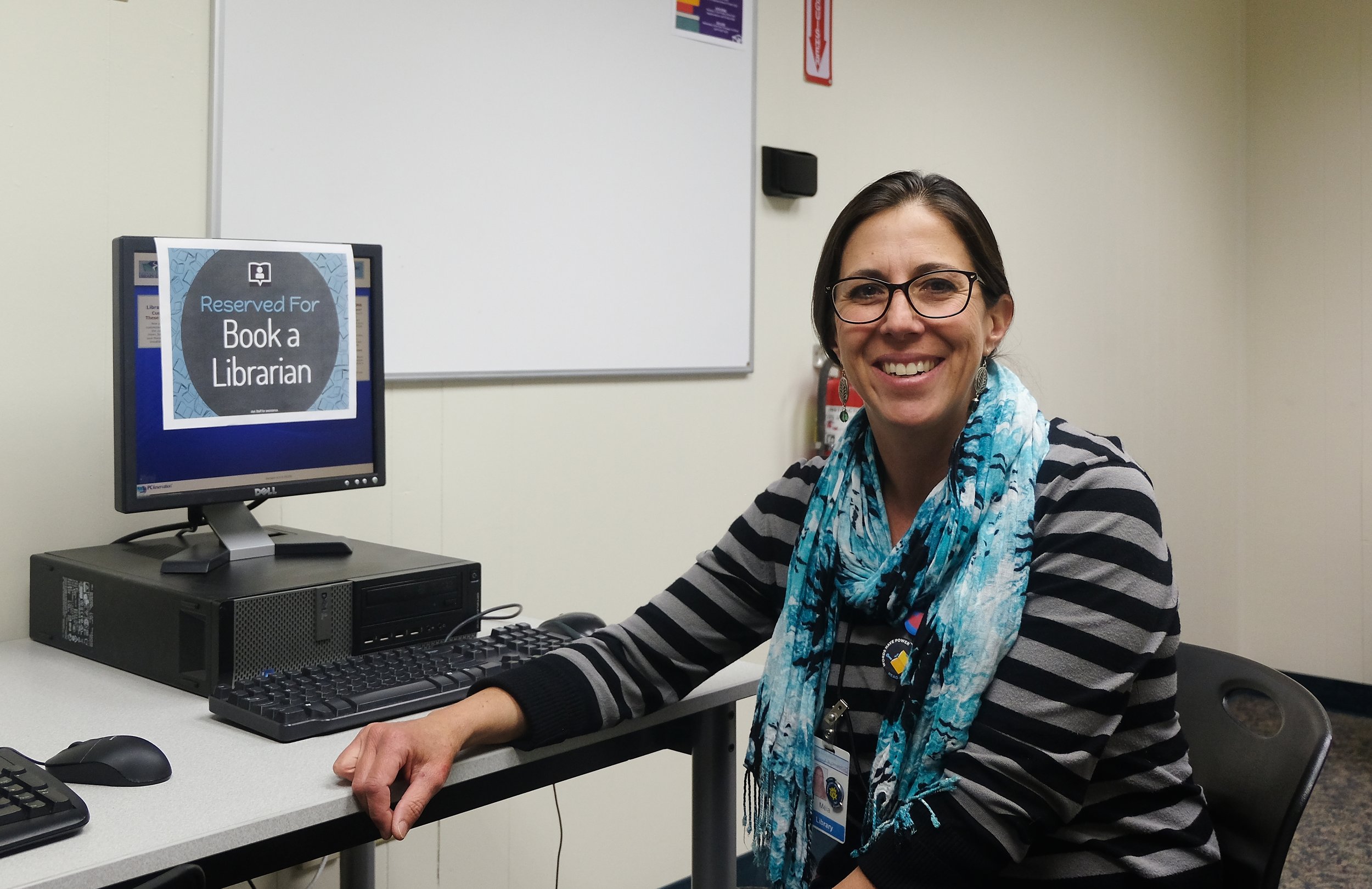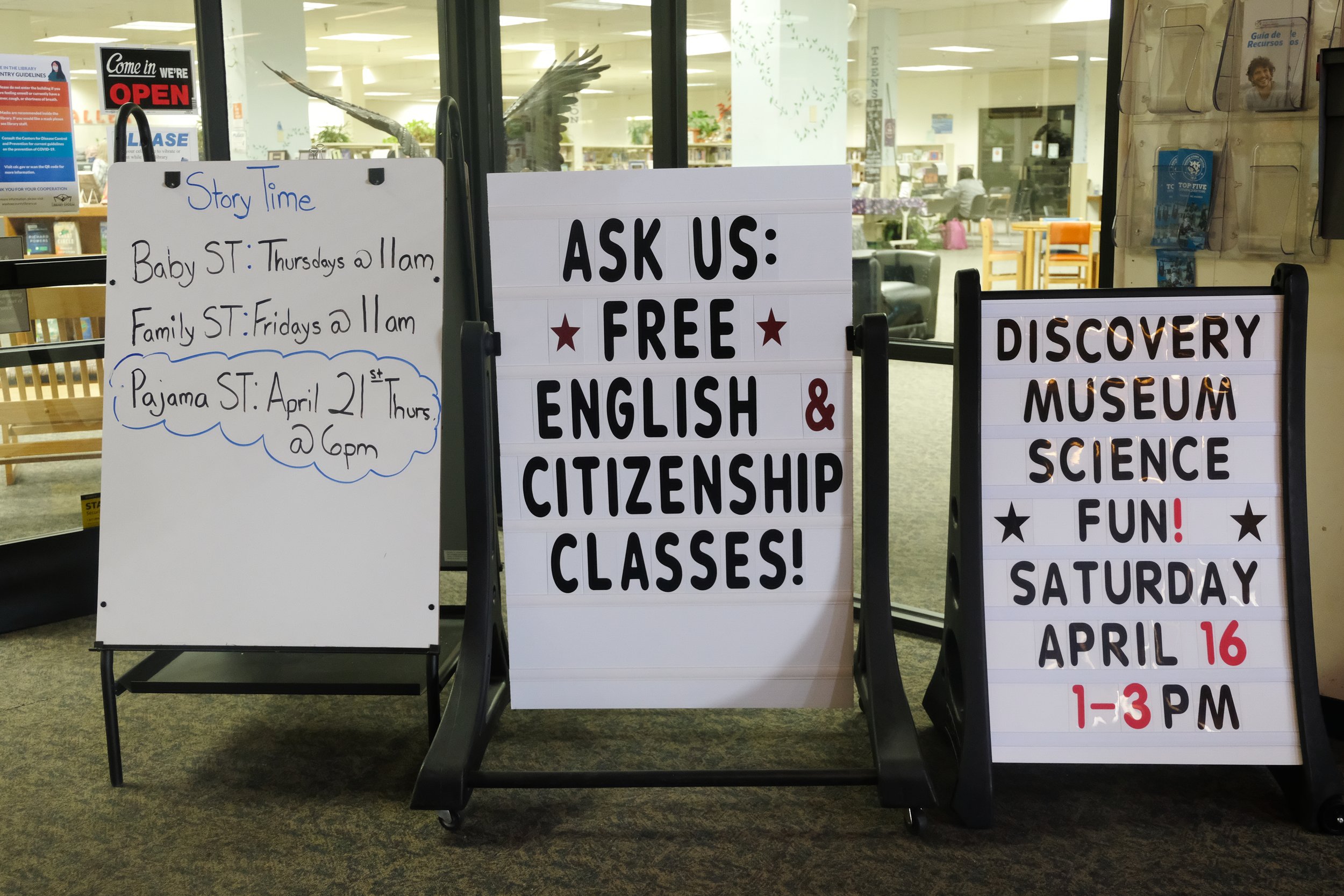Inside the Reno Town Mall on S. Virginia Street sits the Sierra View Library. While many may know it for the books and library services they offer, it also provides a community resource program to help with the growing digital divide.
Melissa Garcia, a 46-year-old librarian at Sierra View library can often be seen helping patrons in a small room at the end of the library. Garcia and other librarians will sit at one of four computers with visitors who need help with anything from setting up an email address to having a Zoom call with a lawyer.
“For a long time, we had noticed that the digital divide is growing a lot in certain demographics,” Garcia said. Some of the patrons who use the service are the elderly, and those facing housing insecurity.
After the Washoe County Library system shut down at the beginning of the pandemic, the lack of digital access and literacy was exacerbated. Without warning, everything shifted online and those on the lower side of the digital divide felt that impact.
“Folks felt very lost and it reinforced to us here that we needed to to change things up a bit to better meet our patrons needs,” Garcia said. Before the pandemic, the service they offered was just a librarian helping a patron get onto a website, and then patrons were essentially on their own.
While services vary between libraries, the Sierra View Library offers Spanish-speaking services and 90 minute appointments to further help patrons.
As one of the only Spanish-speaking librarians at Sierra View Library, Garcia is proud of the services she can provide.
“I saw a gentleman last week who, you know, he's the only member of his family here,” Garcia said in regards to an appointment with a Spanish-speaker. “So oftentimes someone with a language barrier, they can rely on a family member, a younger family member to maybe bring them in and translate all of that. [Then] there are folks out there that don't have anybody.”
Other services that the library offers are English acquisition classes, citizenship classes, and a family estate planning series.
Garcia has learned a lot about who typically needs help. Some patrons don’t know how to type, are uncomfortable with computers, or need to make important Zoom calls.
The space in the library is semi-private, so when patrons have Zoom calls with lawyers or doctors, Garcia makes sure that they are aware of it. However, many are just grateful that they are able to access a computer.
“I mean all those things that most of us digital natives would take for granted … people can do for free here,” Garcia said.
Aside from computer access, the library offers iPad services, and webcams for those who may need to verify their identity online. ID.me is a common website used to verify online identity, and Garcia has helped patrons navigate it for unemployment.
Garcia emphasizes that the librarians can’t really give advice since their main role is as a digital navigator for patrons. However, through the website Brainfuse they can give patrons access to interview and resume coaches.
“We’ve helped people get jobs,” Garcia said. “We get a lot of fulfillment from it.”
Garcia doesn’t take thank yous from patrons lightly. She, and other librarians understand that what they do has a huge impact for those who are scraping by.
“When you’re helping someone seek housing- I mean that’s such a crucial life need for survival,” Garcia said. “From a human to human perspective, it does feel really good to help.”

